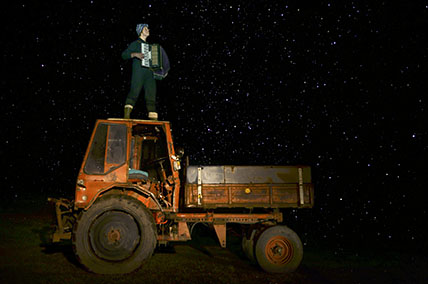The exhibition in the small Estonian village Luunja was a part of my doctoral dissertation Woman as a Hero at the Doctoral School of Art and Design at the Estonian Academy of Arts.
I am exploring and rethinking heroism from the women's viewpoint. Women in our culture have been positioned as victims rather than heroes. The Soviet time was a period in history while women were put on the pedestal as heroes. Many women were nominated as Heroes of Socialist Labour for the hard work, often done in traditional men's field, for example on the tractor. There seems to be a missing link, almost a void between Soviet time and contemporary microhistory. Once worshipped female tractor drivers have been long forgotten and often ridicyled. Common opinion is that women worked on the machines only as long as the men were in the war and because the hero's title was given them by the state, they were just passive victims of social construction.
Although there is some truth in it, my work shows that many women liked driving the tractor or combine harvester and often repaired machinery by themselves. Elmina Otsman (1924, Russia-2012, Estonia) is Estonian most famous female tractor driver. She got several official awards, including Pasha Angelina prize, which was only for female mechanics. Careful study of her diary and letters suggests she really loved her work and dreamt about becoming a hero.
For the creative work I collected the stories about female mechanics and asked the local hobby actors to play. I wanted to achieve a new apporoach to the topic. Those women were nominated as heroes but they had also a human side. They saw their purpose of life as giving bread to the people. Was it wrong they liked to drive the tractor and be heroes?
Strongs' Path - Pictures from the Life of Female Tractor Drivers
E. Otsman's sons talk about their mother
